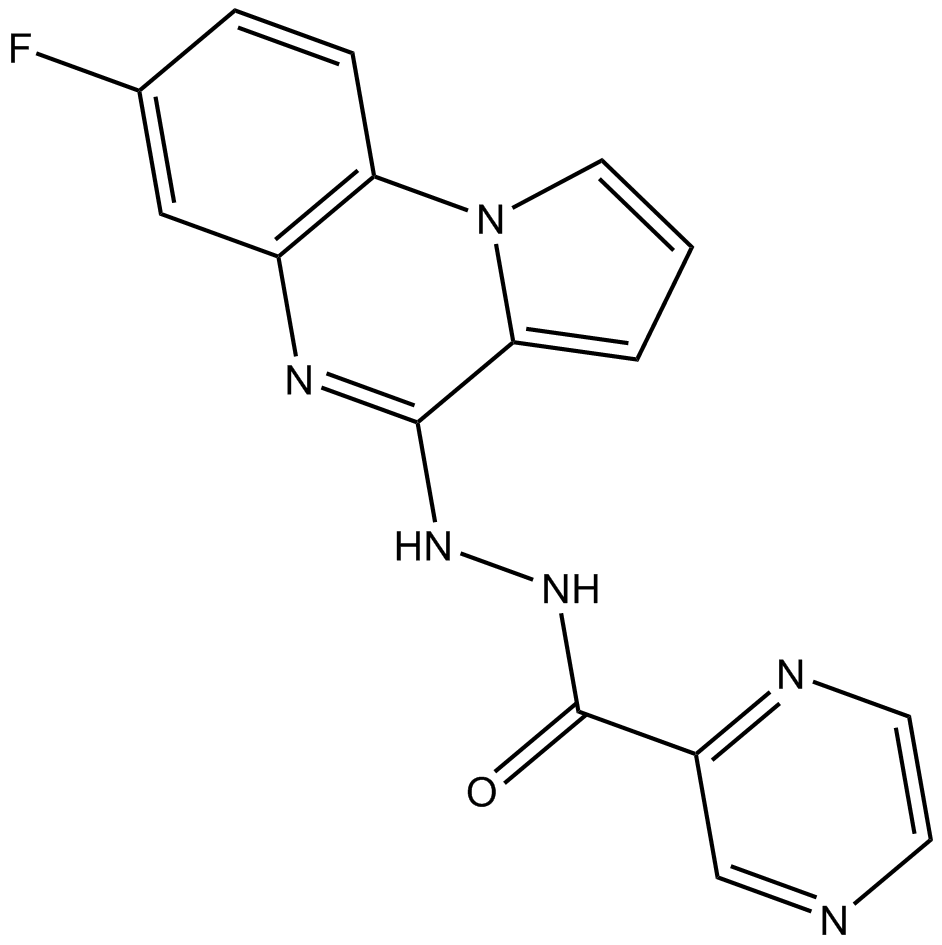SC 144 |
| Catalog No.GC15714 |
Gp130 inhibitor
Products are for research use only. Not for human use. We do not sell to patients.

Cas No.: 895158-95-9
Sample solution is provided at 25 µL, 10mM.
SC144 is an inhibitor of gp130 with IC50 values of 0.43 μmol/L and 0.88 μmol/L in NCI/ADR-RES and HEY cell lines, respectively [1].
SC144 is a first-in-class small-molecule gp130 inhibitor with oral activity in ovarian cancer. It can substantially increase the phosphorylation of gp130 (S782) in both OVCAR-8 and Caov-3 cells in a time- and dose-dependent manner. The increase phosphorylation then suppresses Stat3 signaling pathway since the constitutive Stat3 activation is maintained by extracellular gp130 ligands, Besides that, SC144 also causes substantial cell apoptosis in these cells. [1].
Apart from the effect on gp130, it has been reported that SC144 can directly bind and stabilize IL-24 in cancer cells. Additionally, SC144 has shown to have effects on cell cycle perturbation and apoptosis induction [2].
SC144 may also have other cellular protein targets, resulting in multiple potential molecular mechanisms. SC144’s anticancer potency may be a sum of these effects [2].
References:
[1] Shili Xu, Fedora Grande, Antonio Garofalo, et al. Discovery of a Novel Orally Active Small-Molecule gp130 Inhibitor for the Treatment of Ovarian Cancer. Molecular Cancer Therapeutics. 2013 (12): 937-949.
[2] Shili Xu, Takashi Oshima, Toshio Imada, Munetaka Masuda, Bikash Debnath, Fedora Grande, Antonio Garofalo, Nouri Neamati. Stabilization of MDA-7/IL-24 for colon cancer therapy. Cancer Letters. 2013 Feb(335):421-430.
Average Rating: 5 (Based on Reviews and 26 reference(s) in Google Scholar.)
GLPBIO products are for RESEARCH USE ONLY. Please make sure your review or question is research based.
Required fields are marked with *




















